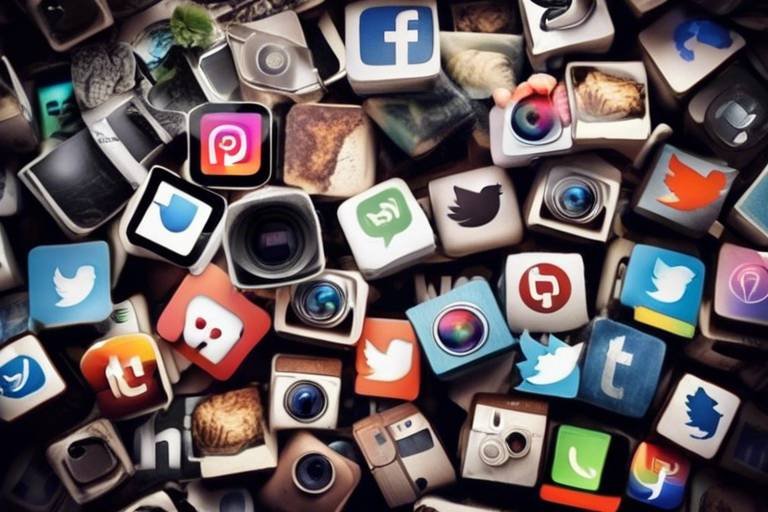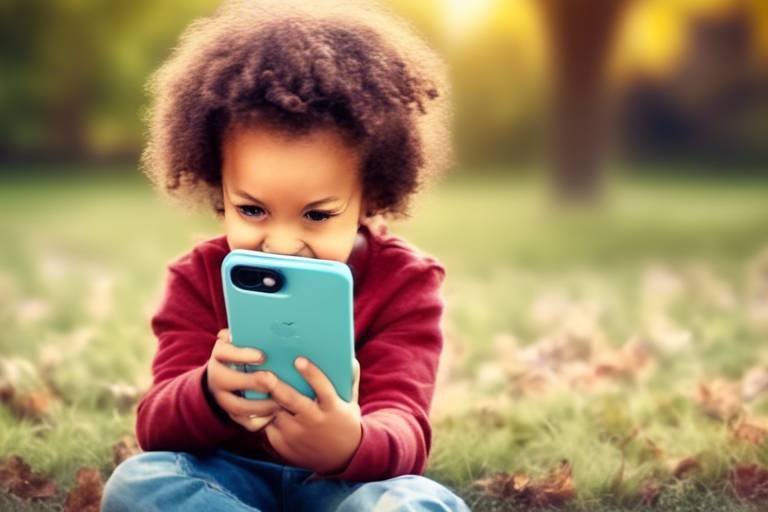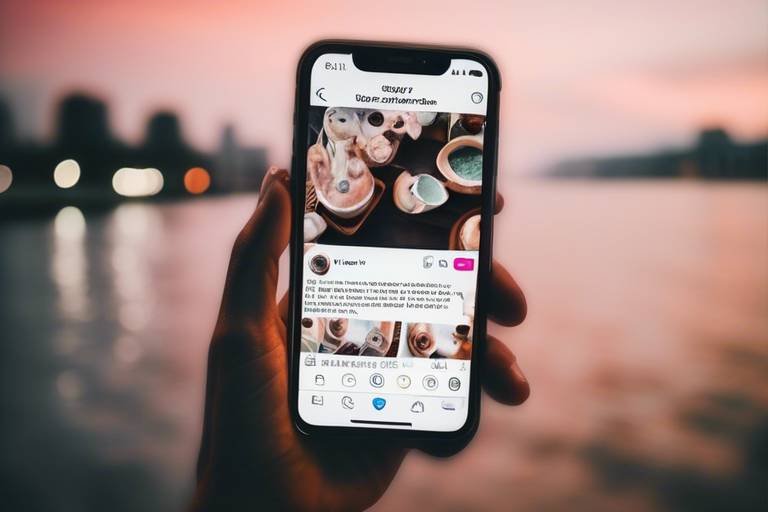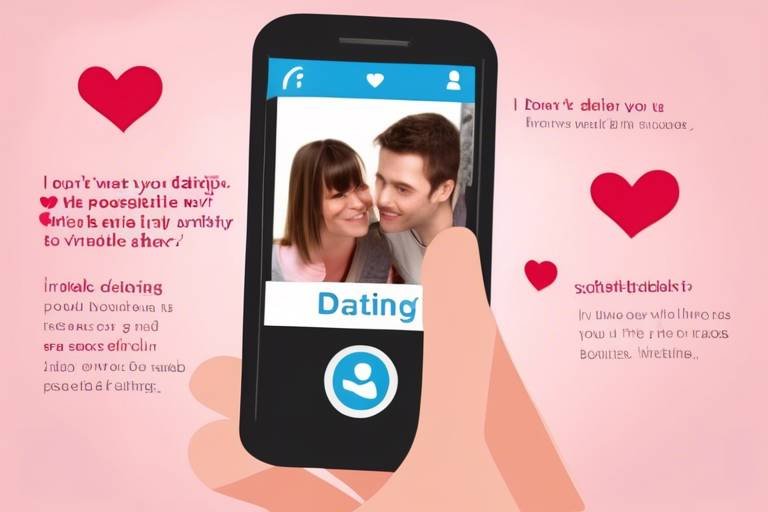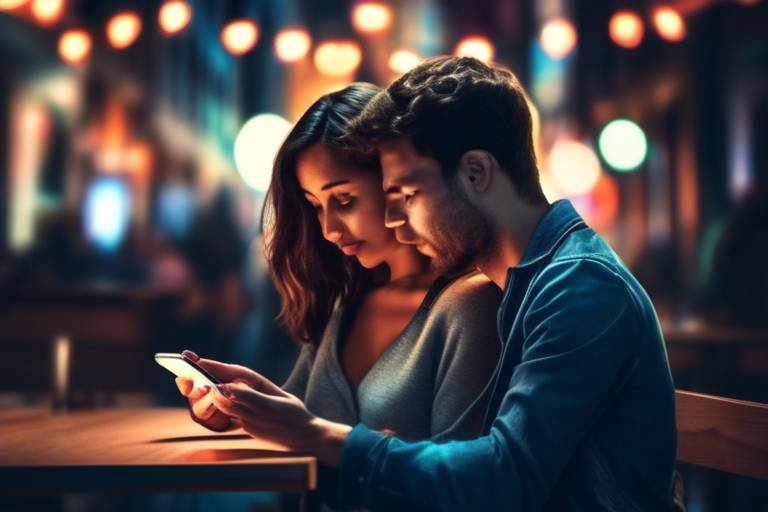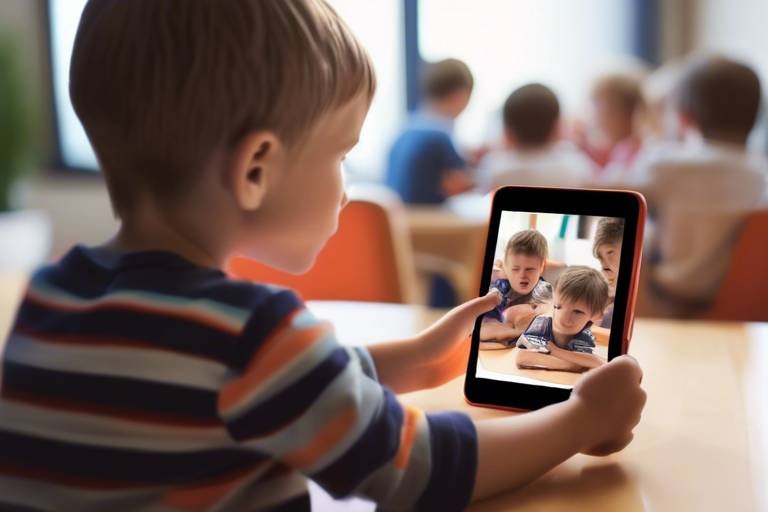The Downside of Dependence on Social Media
In a world where we are more connected than ever, the rise of social media has transformed the way we communicate, share, and interact. But have you ever stopped to think about the downside of this digital dependency? While social media platforms like Facebook, Instagram, and Twitter offer exciting ways to connect with friends and family, they also come with a host of negative implications that can impact our mental health, social skills, and even our understanding of reality. This article explores the various ways excessive social media use can affect our lives, encouraging you to reflect on your own online habits and consider whether they are truly serving you.
One of the most alarming effects of social media is its potential to exacerbate feelings of anxiety and depression. Users often find themselves scrolling through carefully curated profiles, comparing their own lives to the seemingly perfect lives of others. This constant comparison can lead to a distorted self-image, where individuals feel inadequate or unworthy. Imagine walking into a party where everyone seems to be having the time of their lives while you’re stuck in the corner feeling invisible. That’s what scrolling through social media can feel like for many. Additionally, studies have shown that excessive social media use is linked to increased emotional distress, making it crucial to examine our online behaviors.
As social media continues to dominate our communication landscape, there has been a noticeable decline in meaningful in-person relationships. People often prioritize online connections over genuine, real-world interactions, which can weaken social skills and emotional bonds. Think about it: how many times have you chosen to send a text instead of having a face-to-face conversation? This shift can lead to feelings of isolation, as the depth of connection found in real-life interactions is often lost in the digital realm.
Despite being more connected than ever, many individuals report feelings of isolation as social media can create a false sense of community. It’s ironic, isn’t it? We have thousands of friends online, yet we can feel utterly alone. This disconnect often becomes apparent when we step away from our screens, leaving us feeling lonely when offline interactions are lacking. The paradox of social media is that it can make us feel connected while simultaneously isolating us from meaningful relationships.
The phenomenon known as FOMO, or the fear of missing out, is another significant downside of social media. As users scroll through posts showcasing exciting events and gatherings, they may feel inadequate or excluded from social happenings. This constant exposure to others’ seemingly perfect lives can intensify feelings of anxiety and disconnection from peers. It’s like watching a highlight reel of everyone else’s life while you feel stuck in the background.
Moreover, online interactions often lack the depth necessary for building strong, supportive relationships. Many friendships today are reduced to likes and comments, lacking the emotional support and understanding found in deeper, more meaningful connections. These superficial relationships can leave individuals feeling unfulfilled and craving the kind of connection that only real-life interactions can provide.
Heavy reliance on social media can also hinder our communication skills. As we become accustomed to texting and messaging, we may struggle with face-to-face conversations, misinterpret nonverbal cues, and develop a preference for digital interactions over personal ones. This shift can lead to awkward silences and misunderstandings in real-life situations, ultimately affecting our ability to connect with others on a deeper level.
Another significant downside of social media is its role in the rapid spread of misinformation. In an age where sharing is instantaneous, users often share unverified content without a second thought. This can lead to confusion, fear, and misguided beliefs that affect public opinion and behavior. It’s like a game of telephone, where the message gets distorted as it passes from one person to another, ultimately leading to widespread misunderstanding.
Social media algorithms often create echo chambers, where users are exposed only to viewpoints that reinforce their own. This not only contributes to societal polarization but also diminishes open dialogue. When everyone is shouting into their own echo chamber, how can we expect to have meaningful conversations that bridge divides?
Lastly, users are often manipulated by targeted advertisements and misleading content, compromising their ability to make informed decisions. This culture of exploitation within digital spaces fosters a sense of distrust and confusion, making it more challenging to navigate the vast sea of information available at our fingertips.
- How does social media affect mental health? Excessive use can lead to anxiety, depression, and a distorted self-image due to constant comparison with others.
- Can social media lead to loneliness? Yes, despite being connected online, many individuals report feeling isolated and lonely in their offline lives.
- What are echo chambers? Echo chambers are situations where individuals are only exposed to information or opinions that reinforce their existing beliefs, leading to polarization.
- How can I reduce my dependence on social media? Consider setting limits on your usage, engaging more in face-to-face interactions, and being mindful of the content you consume and share.

Impact on Mental Health
This article explores the negative impacts of excessive social media use, including mental health issues, diminished real-life interactions, and the spread of misinformation, encouraging readers to reflect on their online habits.
Social media is like a double-edged sword; while it connects us to friends and family, it can also wreak havoc on our mental health. Many users find themselves caught in a cycle of comparison, scrolling through curated profiles that showcase the highlight reels of others' lives. This constant exposure can lead to feelings of inadequacy and self-doubt. Have you ever felt that pang of jealousy when you see someone’s vacation photos or their seemingly perfect relationship? It’s all too common. Studies have shown that excessive use of social media can exacerbate feelings of anxiety and depression, creating a distorted self-image that can be hard to shake off.
To illustrate this point, consider the following statistics:
| Statistic | Percentage |
|---|---|
| Users who feel inadequate due to social media | 60% |
| Increase in anxiety levels among heavy users | 40% |
| Users who report feelings of depression | 30% |
Moreover, the pressure to maintain an online persona can lead to chronic stress. The fear of not receiving enough likes or comments can turn a simple post into a source of anxiety. It’s as if every update is a performance, and the audience is always watching. This constant scrutiny can lead to a vicious cycle of seeking validation online, which is often fleeting and unsatisfying. It raises the question: are we living our lives for ourselves or for our followers?
Another significant aspect of social media's impact on mental health is the phenomenon known as “social comparison.” Users often compare their everyday lives to the highlight reels of others, which can result in:
- Low self-esteem: Feeling inferior when comparing oneself to others.
- Body image issues: Constant exposure to idealized images can distort one’s perception of beauty.
- Fear of missing out (FOMO): Seeing friends engage in activities can lead to feelings of exclusion.
In essence, the curated nature of social media can create unrealistic expectations, leading users to feel unworthy or unaccomplished. It’s crucial to recognize that what we see online is often a facade, carefully crafted and filtered. Understanding this can help mitigate some of the negative feelings associated with social media use.
In conclusion, while social media can foster connections, it’s essential to be aware of its potential to harm mental health. By taking a step back and assessing our online habits, we can create a healthier relationship with these platforms. Remember, it’s perfectly okay to unplug and live in the moment.
- How can I reduce my social media usage? Try setting specific times for checking social media or use apps that limit your usage.
- What are some signs I might be struggling with mental health due to social media? Look for signs like increased anxiety, feelings of inadequacy, or withdrawal from real-life interactions.
- Can social media ever be beneficial for mental health? Yes, it can be a source of support and community if used mindfully and positively.
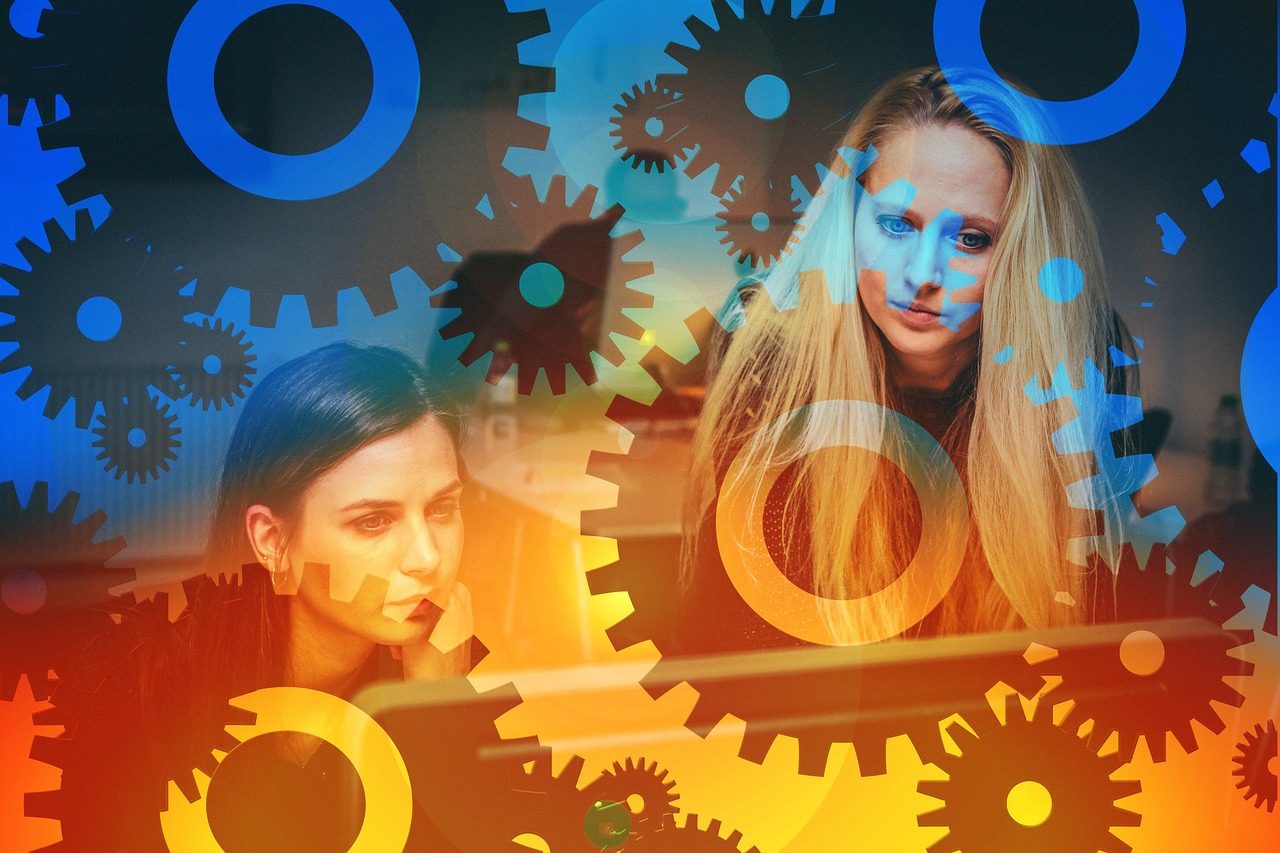
Decreased Face-to-Face Interactions
In today's digital age, the rise of social media has undeniably transformed the way we communicate and connect with one another. However, this transformation comes at a cost. As we become more absorbed in our online lives, the frequency and quality of our face-to-face interactions have significantly declined. Have you ever noticed how a simple gathering can turn into a sea of heads buried in phones, each person more engaged with their screens than with the company around them? It's a common sight, and it raises an important question: Are we sacrificing genuine connections for the sake of virtual likes and shares?
When we prioritize online connections over real-world interactions, we risk weakening our social skills and emotional bonds. The art of conversation, once a natural and fluid exchange, can become awkward and stilted when we’re used to tapping out our thoughts on a keyboard. This shift not only affects our ability to communicate effectively but also diminishes the richness of our relationships. After all, how can we truly understand someone if we only see their curated online persona? The nuances of body language, tone of voice, and spontaneous reactions are lost in the digital ether.
Moreover, the decline in face-to-face interactions can lead to a sense of isolation and loneliness. It's ironic, isn’t it? We are more connected than ever through social media, yet many report feeling more alone. This phenomenon can be attributed to the superficial nature of online relationships, which often lack the depth and emotional support found in genuine friendships. When we rely on social media for our social needs, we may find ourselves surrounded by "friends" who are merely acquaintances, leaving us longing for the meaningful connections that come from sharing experiences in person.
Consider the impact of the Fear of Missing Out (FOMO). Social media can intensify feelings of exclusion, as we scroll through images of friends enjoying events we weren’t invited to. This can lead to a downward spiral of anxiety and feelings of inadequacy, making it even harder to reach out and engage in real-world interactions. Instead of fostering a sense of belonging, social media can inadvertently create a barrier that isolates us from those who matter most.
To illustrate this point, let's take a look at a simple table that compares online interactions with face-to-face interactions:
| Aspect | Online Interactions | Face-to-Face Interactions |
|---|---|---|
| Depth of Connection | Superficial | Deep and Meaningful |
| Emotional Support | Limited | Robust |
| Nonverbal Communication | Absent | Present |
| Quality of Conversation | Text-based, often misinterpreted | Rich, dynamic, and engaging |
As we reflect on our social habits, it becomes clear that while social media offers convenience and connectivity, it also poses significant challenges to our ability to engage in meaningful, face-to-face interactions. We must ask ourselves: Are we willing to trade the warmth of a genuine smile and the comfort of a friend’s presence for the fleeting validation of a "like"? It's time to reclaim our social lives from the clutches of our screens and prioritize the relationships that truly enrich our lives.
- How can I reduce my social media usage? Consider setting specific times for checking social media or using apps that track your screen time.
- What are some ways to foster face-to-face interactions? Plan regular meet-ups with friends, join clubs or community groups, or attend local events.
- Is it possible to maintain friendships through social media? Yes, but it's essential to balance online interactions with in-person connections to strengthen those relationships.
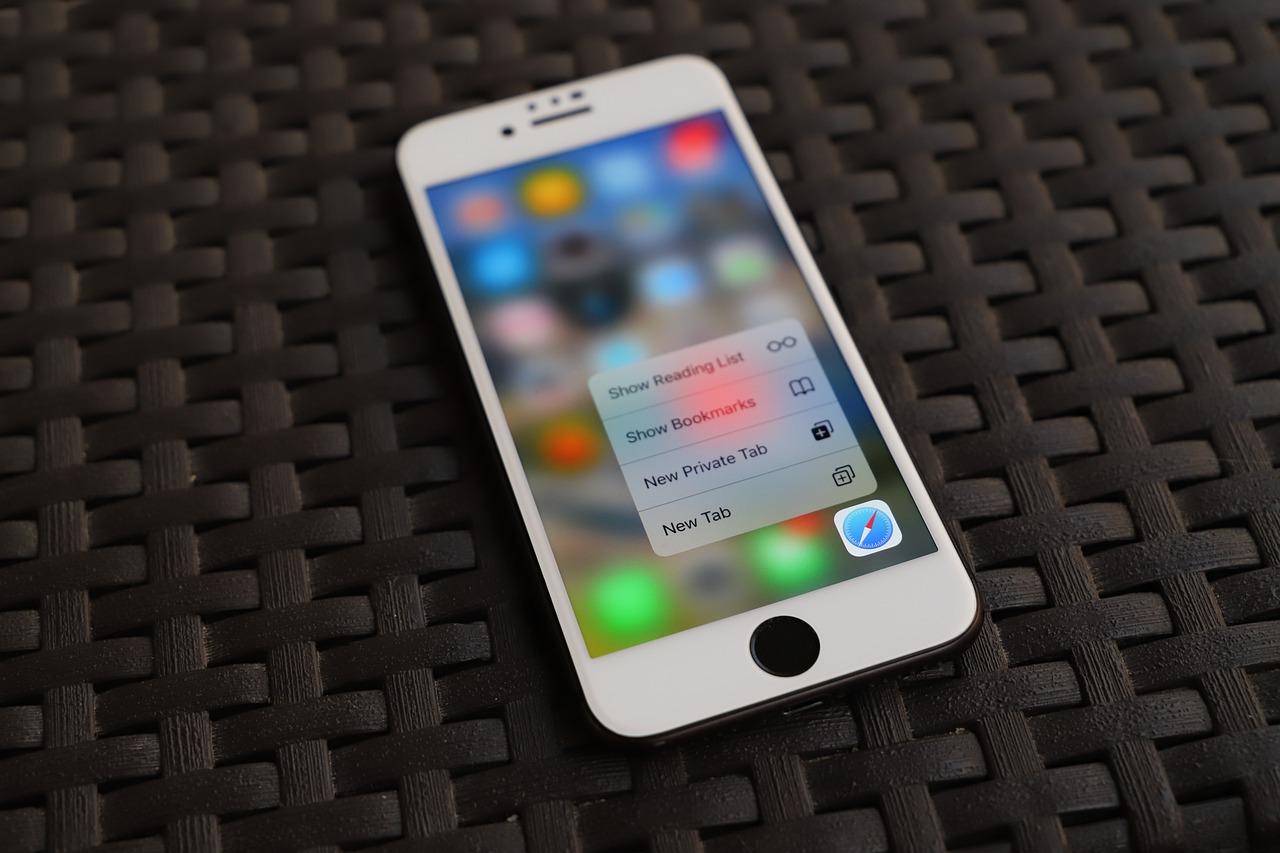
Isolation and Loneliness
In a world that seems to be more connected than ever, it's ironic that many individuals feel a profound sense of isolation and loneliness. Social media platforms, while designed to foster connections, often create a paradox where users find themselves feeling more alone. Imagine scrolling through a feed filled with smiling faces, exciting adventures, and vibrant lifestyles, and yet, you feel like you're watching from the outside, peering through a glass wall. This experience can lead to a deep-seated sense of disconnection from reality.
Many people fall into the trap of equating online interactions with genuine relationships. They might have hundreds of friends or followers, but when it comes to true companionship, they often find themselves lacking. Social media can create a false sense of community, where the number of likes or comments can momentarily boost self-esteem but ultimately fails to provide the emotional support that comes from real-life interactions. It's like having an abundance of acquaintances while lacking a single close friend who truly understands you.
Moreover, the phenomenon of FOMO (Fear of Missing Out) can exacerbate feelings of loneliness. When users see others engaging in social activities without them, it can trigger feelings of inadequacy and exclusion. This constant comparison can lead to a spiral of negative emotions, making individuals feel even more isolated. They may start to retreat further into their digital worlds, thinking that if they can't be part of the real world, they might as well immerse themselves in the online one. Unfortunately, this only deepens their sense of loneliness.
It's also important to recognize how social media can distort our perceptions of relationships. The interactions that occur online are often superficial, lacking the depth and emotional resonance that come from face-to-face conversations. Users may find themselves engaging in small talk or exchanging memes, but when it comes to discussing feelings, dreams, or challenges, those conversations often fall flat. This lack of meaningful engagement can lead to a sense of emptiness, as individuals yearn for deeper connections that social media simply cannot provide.
Ultimately, while social media can serve as a tool for connection, it can also be a breeding ground for feelings of isolation and loneliness. It's essential for users to reflect on their online habits and consider how their social media use impacts their mental health and relationships. Perhaps it's time to step away from the screen and seek out genuine connections in the real world, where the warmth of a smile or the comfort of a hug can make all the difference.
- How does social media contribute to feelings of loneliness?
Social media can create a false sense of connection while lacking genuine emotional support, leading to feelings of isolation. - What is FOMO and how does it affect mental health?
FOMO, or Fear of Missing Out, can intensify feelings of inadequacy and exclusion, contributing to anxiety and loneliness. - How can I combat feelings of isolation caused by social media?
Consider limiting your social media use, engaging in face-to-face interactions, and focusing on building deeper relationships. - Can social media ever be beneficial for mental health?
Yes, when used mindfully, social media can help maintain connections and provide support, but it’s crucial to find a balance.
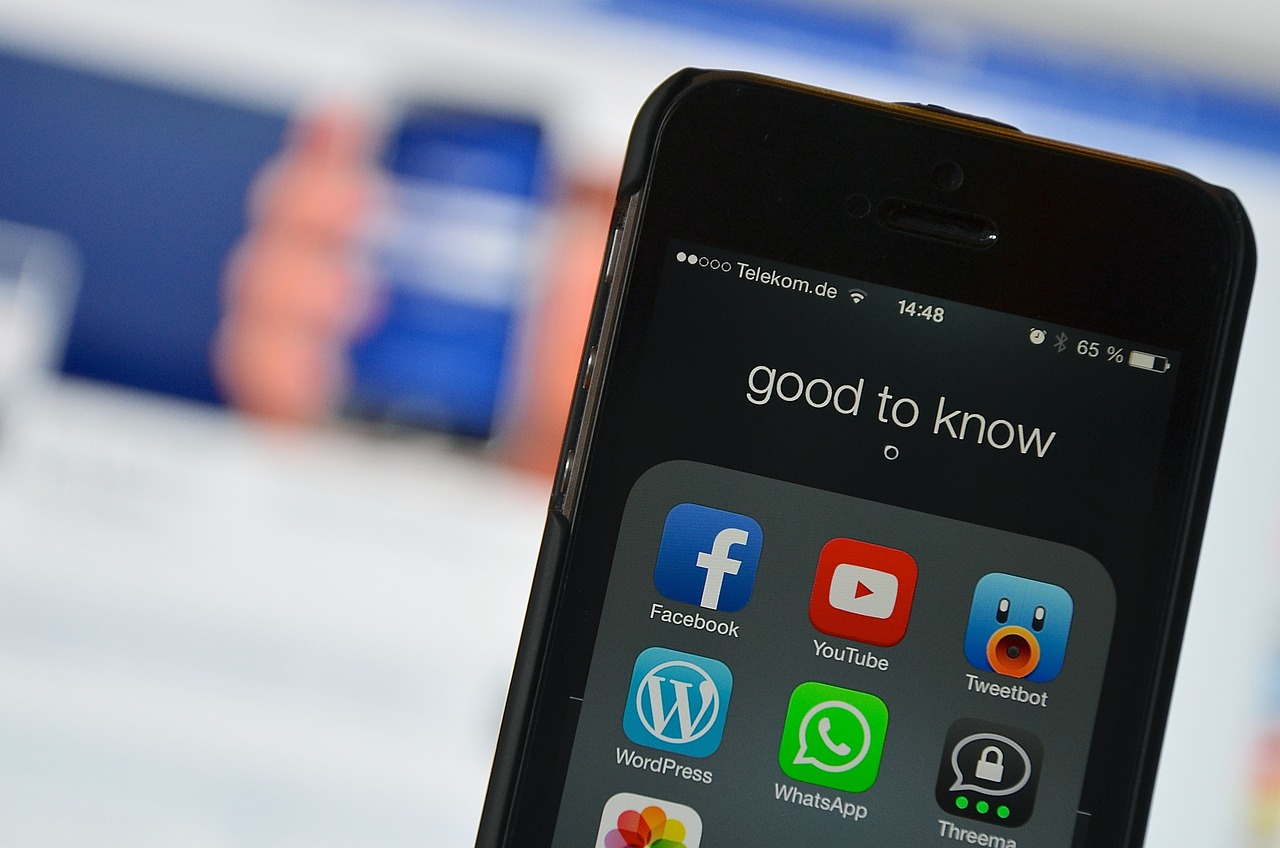
FOMO: The Fear of Missing Out
This article explores the negative impacts of excessive social media use, including mental health issues, diminished real-life interactions, and the spread of misinformation, encouraging readers to reflect on their online habits.
Social media can exacerbate feelings of anxiety and depression, as users often compare themselves to curated online personas, leading to a distorted self-image and increased emotional distress.
The rise of social media has led to a decline in meaningful in-person relationships, as people may prioritize online connections over genuine, real-world interactions, weakening social skills and emotional bonds.
Despite being more connected than ever, many individuals report feelings of isolation as social media can create a false sense of community, leading to loneliness when offline interactions are lacking.
FOMO, or the Fear of Missing Out, is a phenomenon that has become increasingly prevalent in our hyper-connected world. Have you ever scrolled through your social media feed and felt a pang of jealousy when you see friends enjoying a concert, vacation, or any exciting event without you? This feeling, fueled by social media, can lead to a cycle of anxiety and dissatisfaction. Users often find themselves constantly checking their phones, worried that they might miss the latest updates or events that their peers are attending.
It's fascinating to think about how this fear can dominate our lives. Instead of enjoying our own experiences, we often find ourselves preoccupied with what others are doing. This can create a sense of inadequacy, as we compare our behind-the-scenes reality to others' highlight reels. The constant barrage of seemingly perfect moments can distort our self-perception and lead to feelings of exclusion and anxiety.
Moreover, FOMO can push individuals to engage in activities they might not genuinely enjoy, simply to avoid feeling left out. This leads to a superficial engagement with life, where the focus shifts from meaningful experiences to merely participating in events for the sake of social media validation. The irony is that while social media connects us, it can also enhance feelings of loneliness when we realize that our online presence does not translate into real-life connections.
Online interactions often lack depth, resulting in superficial relationships that do not provide the emotional support and understanding found in deeper, more meaningful connections.
Heavy reliance on social media can hinder effective communication skills, as users may struggle with face-to-face conversations, misinterpret nonverbal cues, and develop a preference for digital over personal interactions.
Social media platforms can facilitate the rapid spread of misinformation, as users may share unverified content, leading to confusion, fear, and misguided beliefs that can affect public opinion and behavior.
Social media algorithms often create echo chambers, where users are exposed only to viewpoints that reinforce their own, contributing to societal polarization and diminishing open dialogue.
Users are often manipulated by targeted advertisements and misleading content, compromising their ability to make informed decisions and fostering a culture of exploitation within digital spaces.
- What is FOMO? FOMO stands for the Fear of Missing Out, a feeling of anxiety that one is missing out on rewarding experiences that others are having.
- How does social media contribute to FOMO? Social media platforms showcase curated highlights of people's lives, leading to comparisons and feelings of inadequacy.
- Can FOMO affect mental health? Yes, FOMO can lead to increased feelings of anxiety, depression, and loneliness, as individuals may feel disconnected from their peers.
- What can I do to combat FOMO? Engaging in mindfulness practices, limiting social media use, and focusing on real-life interactions can help mitigate feelings of FOMO.
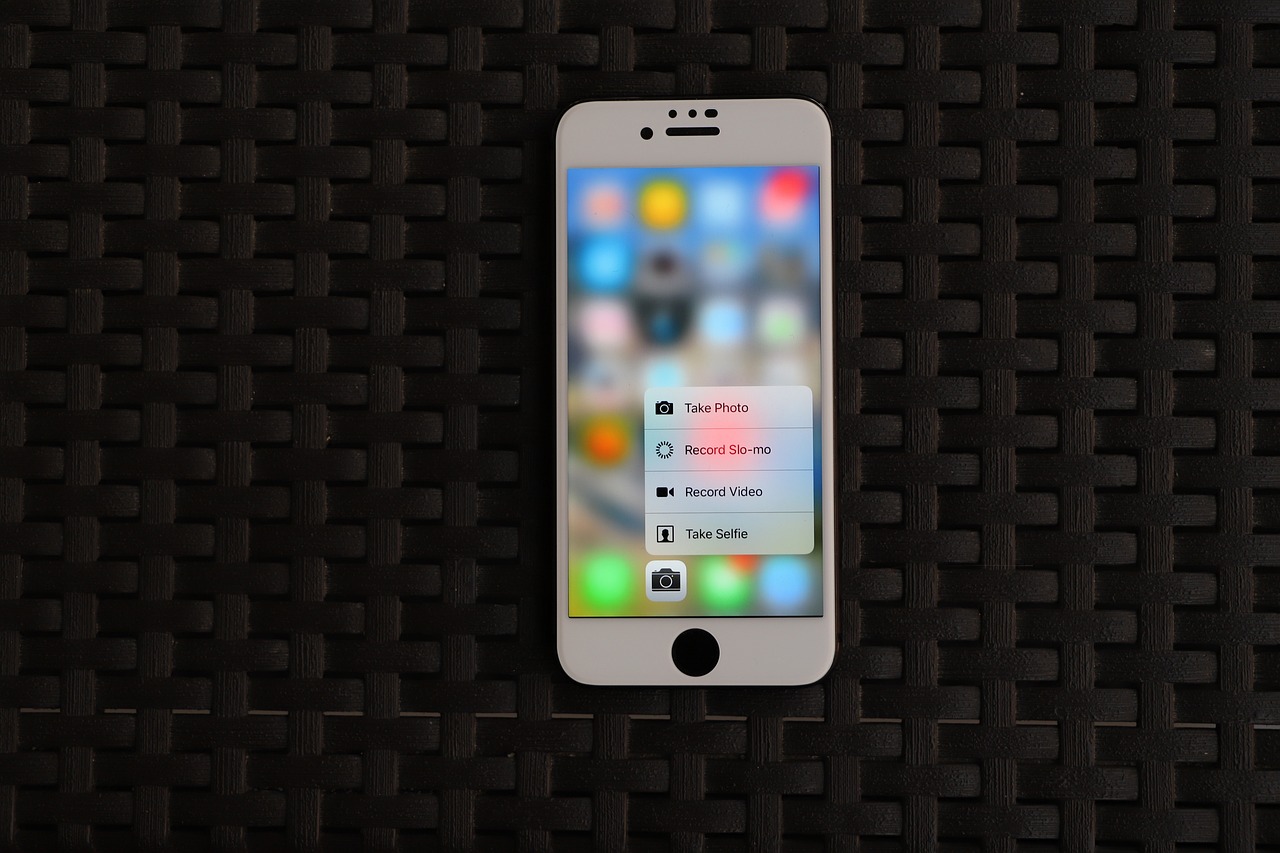
Superficial Relationships
In our hyper-connected world, it’s ironic how social media has created a landscape where thrive. You might find yourself scrolling through endless feeds, liking posts, and commenting on photos, but how many of these interactions truly matter? The reality is that online connections often lack the depth and emotional support we crave. Think about it: when was the last time you had a meaningful conversation with someone you met through social media?
While it’s easy to build a network of acquaintances online, these relationships frequently exist in a shallow pool of interactions. Instead of engaging in heartfelt discussions, we often settle for quick exchanges, emojis, and memes. These fleeting moments can give us a fleeting sense of connection, but they rarely fulfill our deeper social needs. When you compare this to real-life friendships that are built on shared experiences, trust, and vulnerability, the difference becomes glaringly obvious.
Moreover, the nature of social media encourages us to present curated versions of ourselves. We post our best moments, filtered and polished, which can create unrealistic expectations for our connections. This can lead to jealousy and a false sense of inadequacy among friends, as they may feel they can never measure up to the perfect lives portrayed online. In essence, social media often fosters a competitive atmosphere rather than a supportive one, leaving us feeling isolated even when we have hundreds of "friends."
Consider the following points about superficial relationships:
- They often lack emotional depth.
- They can lead to feelings of inadequacy and jealousy.
- They may not provide the support needed during tough times.
- They can create a false sense of connection.
So, what can we do to combat the rise of superficial relationships? It starts with making a conscious effort to foster meaningful connections. This may involve reaching out to friends for face-to-face meetups, engaging in deeper conversations, and sharing experiences that go beyond the digital realm. By prioritizing quality over quantity in our relationships, we can begin to build a more fulfilling social circle that enriches our lives rather than detracts from them.
Q1: How can I tell if my relationships are superficial?
A1: If your interactions are mostly limited to likes and comments without any meaningful conversation or support, they may be superficial. Reflect on whether you feel emotionally connected to these individuals.
Q2: What are some signs of a meaningful relationship?
A2: Meaningful relationships often involve deep conversations, mutual support during tough times, and shared experiences that create lasting memories.
Q3: How can I deepen my existing relationships?
A3: Make an effort to spend quality time with friends, initiate deeper conversations, and be vulnerable. Sharing your thoughts and feelings can strengthen your bond.
Q4: Is it possible to have meaningful relationships online?
A4: Yes, but it requires intentionality. Engage in video calls, participate in group activities, and share personal stories to foster deeper connections.

Impact on Communication Skills
In our fast-paced digital world, the way we communicate has undergone a significant transformation, largely due to the influence of social media. While these platforms allow us to connect with people from all walks of life, they also come with a hefty price tag when it comes to our communication skills. Imagine trying to navigate a bustling marketplace without ever having stepped outside your home; that's what heavy social media use can feel like. It creates a barrier that can leave us feeling awkward and unprepared for real-life conversations.
One of the most glaring effects of this digital reliance is the decline in our ability to engage in face-to-face conversations. When was the last time you had a heart-to-heart chat with a friend without glancing at your phone? Many of us have fallen into the habit of favoring quick text messages or social media updates over meaningful dialogue. This shift can lead to a lack of understanding of nonverbal cues, such as body language and facial expressions, which are crucial for effective communication. Without these cues, conversations can become stilted and misunderstandings can arise, leaving us feeling frustrated and disconnected.
Furthermore, the art of active listening seems to be fading away. In a world where notifications are constantly vying for our attention, it's tempting to tune out during conversations. When we prioritize our social media feeds over engaging with those around us, we miss out on the nuances of dialogue. This not only affects our relationships but also hampers our ability to empathize with others. To illustrate this point, consider the following:
| Communication Skill | Impact of Social Media |
|---|---|
| Active Listening | Reduced focus on conversations, leading to misunderstandings. |
| Nonverbal Communication | Inability to read body language and facial expressions. |
| Empathy | Difficulty in connecting emotionally with others. |
Moreover, the tendency to communicate through screens can lead to a preference for digital interactions over personal ones. This shift can create a situation where we feel more comfortable typing out our thoughts than expressing them verbally. It's like learning to swim in a kiddie pool but then being thrown into the ocean; the skills don't always translate effectively. As a result, many individuals find themselves struggling to articulate their thoughts and feelings when they finally do engage in face-to-face conversations.
But there's hope! By intentionally setting aside time to engage in real-world interactions, we can begin to rebuild our communication skills. Here are a few strategies to consider:
- Limit Social Media Use: Designate specific times for checking social media to encourage more in-person interactions.
- Practice Active Listening: Focus on the speaker during conversations, maintaining eye contact and responding thoughtfully.
- Engage in Group Activities: Join clubs or groups that encourage face-to-face communication, such as book clubs or sports teams.
In conclusion, while social media has its perks, it's essential to recognize the impact it has on our communication skills. By being mindful of our online habits and making a conscious effort to engage more in the real world, we can foster deeper connections and improve our ability to communicate effectively. Remember, the next time you're tempted to scroll through your feed, consider striking up a conversation instead. You might just find that the rewards of genuine interaction far outweigh the fleeting satisfaction of a like or comment.
- How does social media affect face-to-face communication? Social media can lead to a decline in face-to-face interactions, making individuals less comfortable and skilled in personal conversations.
- What are some signs of poor communication skills due to social media? Signs include difficulty in reading nonverbal cues, lack of active listening, and a preference for texting over talking.
- Can I improve my communication skills if I rely on social media? Yes! By consciously engaging in more face-to-face interactions and practicing active listening, you can enhance your communication abilities.
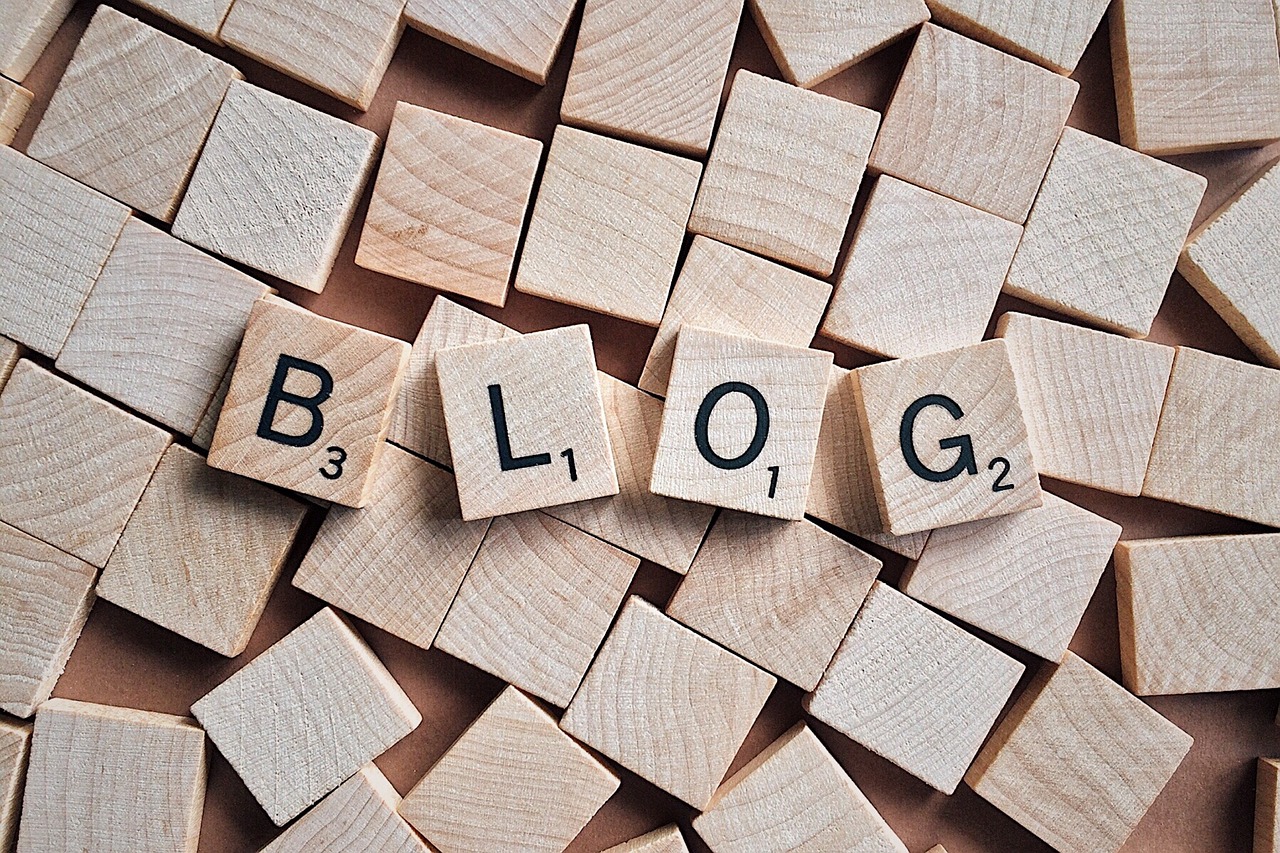
Spread of Misinformation
In today's digital age, the has become a rampant issue that affects individuals and society as a whole. Social media platforms, designed to foster connection and communication, have inadvertently become breeding grounds for false information. This phenomenon is particularly alarming because it can lead to confusion, fear, and misguided beliefs among users. Imagine scrolling through your feed and stumbling upon a sensational headline that claims a miracle cure for a serious illness. You might feel compelled to share it, believing you are helping others, but in reality, you could be spreading harmful misinformation.
One of the primary reasons misinformation spreads so quickly on social media is the ease of sharing content. With just a click of a button, users can disseminate information to their entire network, often without verifying its accuracy. This creates a ripple effect, where unverified claims can go viral in a matter of hours. In fact, studies have shown that false information travels faster than the truth on social media, highlighting the urgency of addressing this issue.
Furthermore, social media algorithms play a significant role in this spread. These algorithms are designed to prioritize content that is engaging, which often means sensational or controversial posts get more visibility. As users interact with certain types of content, they are more likely to see similar posts in the future, creating a feedback loop that reinforces their existing beliefs. This phenomenon can lead to a lack of exposure to diverse viewpoints, resulting in what is known as an echo chamber.
To illustrate the impact of misinformation, consider the following table that outlines some common types of misinformation found on social media:
| Type of Misinformation | Description |
|---|---|
| Health Misinformation | False claims about medical treatments or health advice that can lead to harmful behaviors. |
| Political Misinformation | Inaccurate information regarding political events, candidates, or policies that can influence public opinion. |
| Fake News | Fabricated stories presented as news articles that aim to mislead readers for various agendas. |
Additionally, the manipulation and exploitation of users are significant concerns in this landscape. Targeted advertisements and misleading content can compromise individuals' ability to make informed decisions. For instance, a user may unknowingly click on a sponsored post that promotes a dubious product, believing it to be a genuine recommendation. This kind of exploitation fosters a culture where users are constantly bombarded with information that may not be in their best interest.
With the rapid spread of misinformation, it's crucial for individuals to develop a critical eye when consuming content online. Ask yourself: Is this information credible? Who is the source? Are there any supporting facts or evidence? By fostering a habit of questioning the validity of the information we encounter, we can help combat the tide of misinformation that threatens our understanding of the world.
- What is misinformation? Misinformation refers to false or misleading information that is spread, regardless of intent.
- How can I identify misinformation? Look for credible sources, check for supporting evidence, and be wary of sensational headlines.
- What are the consequences of spreading misinformation? Spreading misinformation can lead to confusion, fear, and misguided beliefs that have real-world implications.

Echo Chambers and Polarization
In today's digital age, the phenomenon of echo chambers has become a significant concern, especially within the realm of social media. But what exactly is an echo chamber? Simply put, it's a situation where individuals are exposed primarily to information and opinions that mirror their own beliefs, effectively creating a closed loop of reinforcement. This can lead to a dangerous cycle where users become increasingly polarized in their views, often disregarding any information that contradicts their established beliefs.
The algorithms that drive social media platforms play a pivotal role in this process. They are designed to maximize user engagement by curating content that aligns with users' previous interactions. While this may seem beneficial at first glance, it inadvertently narrows users' exposure to diverse perspectives. Consequently, individuals may find themselves trapped in a bubble, where differing opinions are not just absent but actively filtered out. This lack of diversity in information can lead to a skewed understanding of complex issues, making it difficult for users to engage in constructive dialogue.
Moreover, this polarization can have profound implications for society as a whole. When individuals are only exposed to viewpoints that reinforce their own, it fosters a sense of us vs. them. This division can escalate into hostility, as people become less tolerant of opposing views. The result? A society where meaningful conversations are stifled, and compromise becomes increasingly elusive.
To illustrate this point further, consider the following table that highlights the differences between open dialogue and echo chambers:
| Aspect | Open Dialogue | Echo Chambers |
|---|---|---|
| Exposure to Ideas | Diverse perspectives | Homogeneous opinions |
| Communication Style | Constructive discussions | Argumentative and defensive |
| Emotional Response | Understanding and empathy | Frustration and anger |
| Decision-Making | Informed choices | Biased conclusions |
As we navigate this complex landscape, it's crucial for users to actively seek out diverse sources of information. Engaging with differing viewpoints can not only broaden our understanding but also enhance our ability to communicate effectively with others. After all, isn’t the essence of social media about connecting with others, sharing ideas, and fostering understanding? Breaking free from echo chambers is not just a personal journey; it’s a societal necessity.
In conclusion, while social media can be a powerful tool for connection, it also has the potential to create significant divides. By recognizing the existence of echo chambers and actively working to engage with a wider array of perspectives, we can combat polarization and promote a more inclusive dialogue. So, the next time you scroll through your feed, ask yourself: are you truly hearing different voices, or are you just echoing your own?
- What are echo chambers? Echo chambers are environments where individuals are exposed only to information that reinforces their existing beliefs, leading to a lack of diverse perspectives.
- How do social media algorithms contribute to polarization? Algorithms curate content based on user interactions, often prioritizing similar viewpoints and filtering out opposing opinions, which can create echo chambers.
- What can I do to avoid falling into an echo chamber? Actively seek out diverse sources of information, engage with different viewpoints, and participate in discussions that challenge your beliefs.
- Why is it important to engage with differing opinions? Engaging with a variety of perspectives can foster understanding, enhance communication skills, and promote a more inclusive dialogue in society.
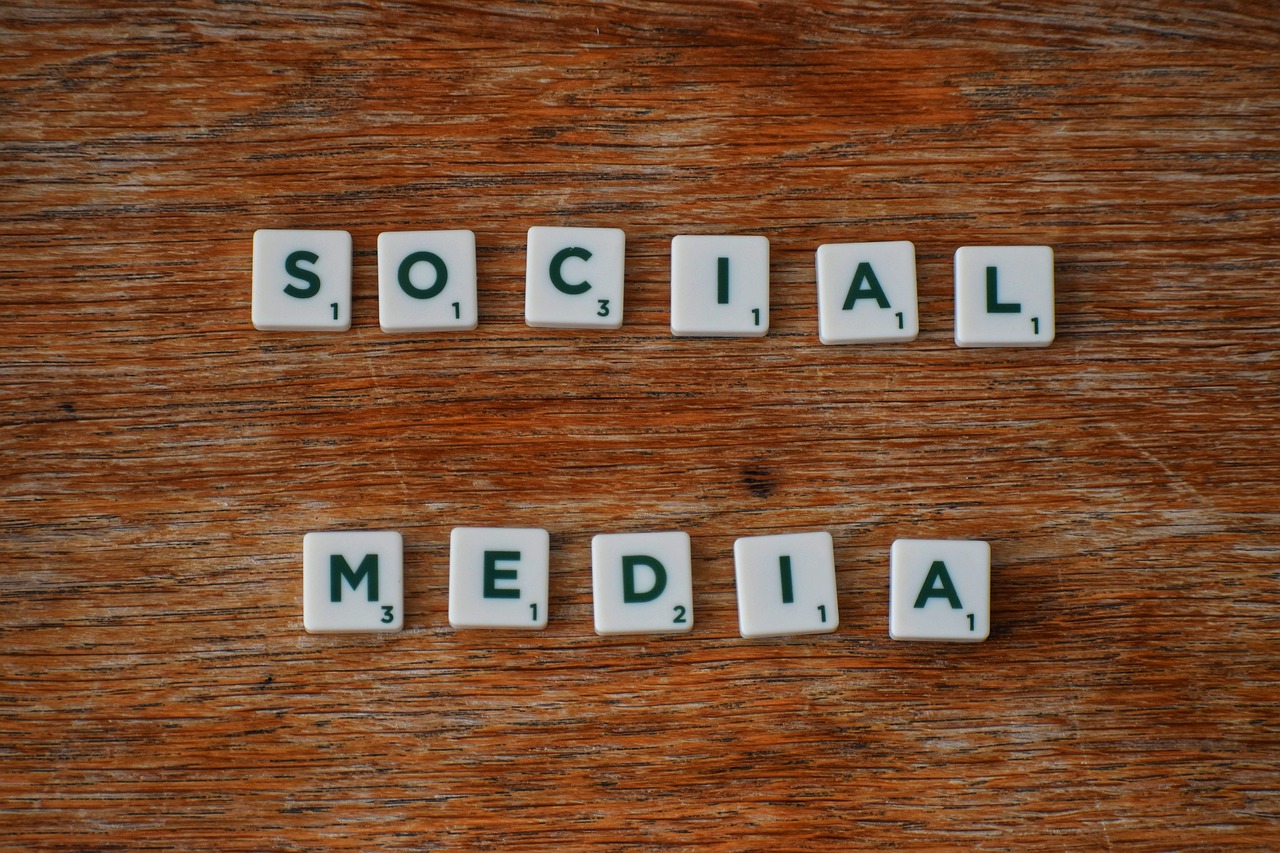
Manipulation and Exploitation
This article explores the negative impacts of excessive social media use, including mental health issues, diminished real-life interactions, and the spread of misinformation, encouraging readers to reflect on their online habits.
Social media can exacerbate feelings of anxiety and depression, as users often compare themselves to curated online personas, leading to a distorted self-image and increased emotional distress.
The rise of social media has led to a decline in meaningful in-person relationships, as people may prioritize online connections over genuine, real-world interactions, weakening social skills and emotional bonds.
Despite being more connected than ever, many individuals report feelings of isolation as social media can create a false sense of community, leading to loneliness when offline interactions are lacking.
Social media can intensify FOMO, causing users to feel inadequate or excluded from social events, which can further contribute to anxiety and a sense of disconnection from their peers.
Online interactions often lack depth, resulting in superficial relationships that do not provide the emotional support and understanding found in deeper, more meaningful connections.
Heavy reliance on social media can hinder effective communication skills, as users may struggle with face-to-face conversations, misinterpret nonverbal cues, and develop a preference for digital over personal interactions.
Social media platforms can facilitate the rapid spread of misinformation, as users may share unverified content, leading to confusion, fear, and misguided beliefs that can affect public opinion and behavior.
Social media algorithms often create echo chambers, where users are exposed only to viewpoints that reinforce their own, contributing to societal polarization and diminishing open dialogue.
In the digital landscape, users often find themselves unwittingly caught in a web of . Social media platforms, driven by algorithms designed to maximize engagement, can lead individuals down a path where their preferences and behaviors are meticulously analyzed. This data-driven approach allows companies to target users with tailored advertisements that exploit their interests and vulnerabilities. For instance, if you frequently engage with fitness content, you might suddenly find yourself bombarded with ads for weight loss supplements or gym memberships, regardless of whether you need them or not.
Moreover, the psychological tactics employed by marketers can create a cycle of dependency. Users may feel compelled to purchase products to fit into idealized lifestyles portrayed online, leading to a sense of inadequacy if they don’t meet these standards. This manipulation extends beyond mere advertising; it infiltrates our daily lives, affecting our self-esteem and decision-making processes.
To illustrate this point, let's consider a table that outlines the common tactics used in social media marketing:
| Tactic | Description |
|---|---|
| Targeted Advertising | Ads tailored to individual user behavior and preferences. |
| Influencer Marketing | Collaboration with popular figures to promote products, creating a sense of trust. |
| Social Proof | Leveraging user reviews and testimonials to influence potential buyers. |
| Scarcity and Urgency | Creating a fear of missing out on limited-time offers to prompt quick purchases. |
These tactics can lead to a culture of exploitation, where users are not only manipulated into making purchases but also into adopting certain lifestyles or beliefs that may not align with their true selves. It’s a vicious cycle that can leave individuals feeling disillusioned and disconnected from their authentic identities.
As consumers, it's crucial to recognize these patterns and develop a critical lens through which we view our online interactions. By questioning the motives behind the content we consume and the ads we encounter, we can reclaim some control over our choices and reduce the influence of manipulation in our digital lives.
- What are the signs of social media addiction? Signs include spending excessive time online, neglecting real-life relationships, and feeling anxious when not checking social media.
- How can I reduce my social media use? Set specific time limits, engage in offline activities, and unfollow accounts that negatively impact your mental health.
- Is it possible to have a healthy relationship with social media? Yes, by curating your feed, being mindful of your usage, and prioritizing real-life interactions, you can maintain a balanced approach.
Frequently Asked Questions
- What are the mental health effects of social media?
Social media can significantly impact mental health by exacerbating feelings of anxiety and depression. Users often find themselves comparing their lives to the curated images and stories presented online, leading to a distorted self-image and increased emotional distress. It's essential to be aware of how these platforms can affect your mood and self-perception.
- How does social media affect real-life interactions?
The rise of social media has led many people to prioritize online connections over face-to-face relationships. This shift can weaken social skills and emotional bonds, making it challenging to engage in meaningful conversations and connections in real life. While we may feel connected online, the depth of those relationships often falls short.
- What is FOMO and how does it relate to social media?
FOMO, or the Fear of Missing Out, is a common feeling among social media users who see friends and acquaintances sharing experiences online. This can create a sense of inadequacy or exclusion, intensifying feelings of anxiety and disconnection. It's crucial to remember that what we see online is often just a highlight reel, not the full picture.
- Can social media lead to feelings of isolation?
Ironically, despite being more connected than ever, many individuals report feeling lonely due to social media. The platforms can create a false sense of community, leading to isolation when offline interactions are lacking. Genuine connections are vital for emotional well-being, and it's essential to seek out real-life interactions.
- How does social media influence communication skills?
Heavy reliance on social media can hinder effective communication skills. Users may struggle with face-to-face conversations, misinterpret nonverbal cues, and develop a preference for digital interactions over personal ones. This shift can lead to misunderstandings and a lack of depth in relationships.
- What role does social media play in the spread of misinformation?
Social media platforms can facilitate the rapid spread of misinformation, as users often share unverified content without fact-checking. This can lead to confusion, fear, and misguided beliefs, affecting public opinion and behavior. Being critical of the information we consume and share online is more important than ever.
- What are echo chambers and how do they affect society?
Echo chambers are created by social media algorithms that expose users only to viewpoints that reinforce their own beliefs. This can contribute to societal polarization and diminish open dialogue, making it harder for individuals to engage with differing opinions. It's essential to seek diverse perspectives to foster understanding and reduce polarization.
- How are users manipulated by social media?
Users are often manipulated by targeted advertisements and misleading content on social media, which can compromise their ability to make informed decisions. This exploitation fosters a culture where users may not even realize they are being influenced, highlighting the need for critical thinking and skepticism when engaging with online content.

